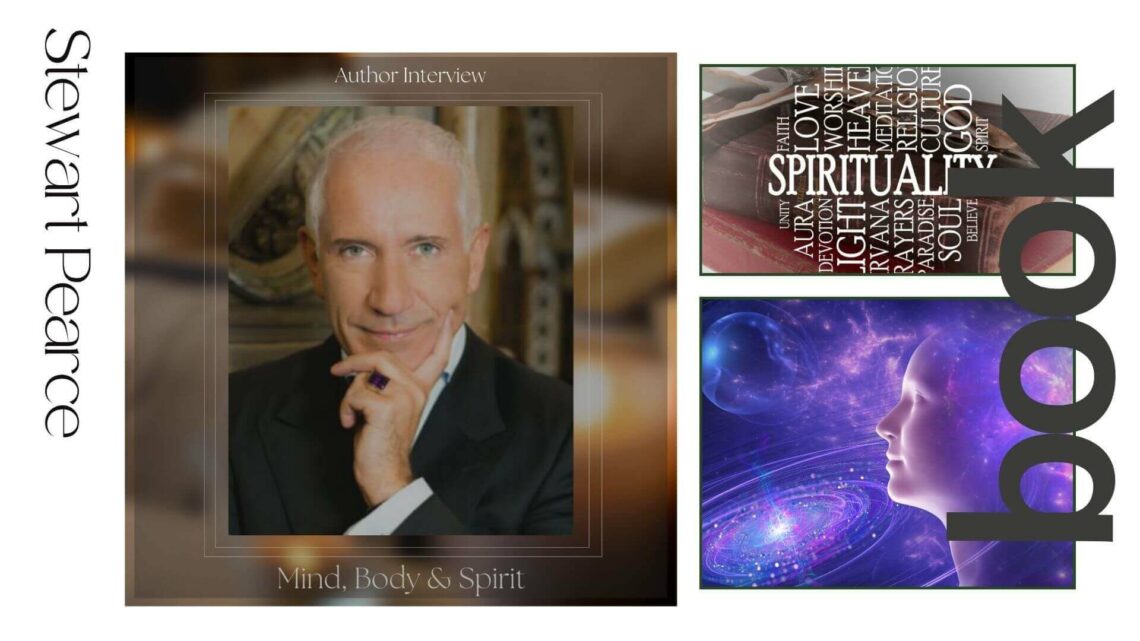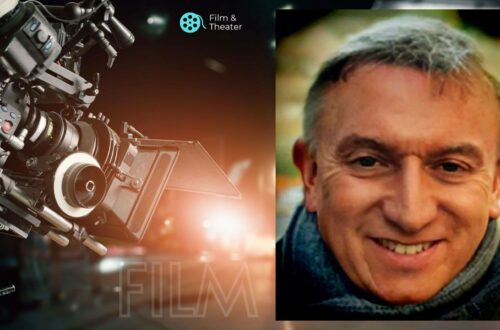
Interview With Stewart Pearce
To put it lightly, Stewart Pearce has had a formidable career as the go-to voice coach for the great and the good, and his pedigree and reputation precede him wherever he goes.
Known around the world as the ‘man who gave Thatcher her voice’ Stewart is as comfortable working with Hollywood stars as he is attending to contemporary Corporate Managers who are experiencing levels of hyper-stress affecting their performance or workshopping offenders in HM Prisons. Stewart’s work has inspired change for over four decades and during key moments of history, he can be found standing in the wings, helping thought-leaders and change-makers to achieve a more authentic presence to fully achieve their potential broadcast to the world.
None benefited more from Stewart’s work than Diana, Princess of Wales, whom he worked with during the last two years of her life, and at a time when she was evolving to establish herself as a strong, solitary feminine presence on the international stage as a Peace Ambassadress Diana, of course, achieved just that, and in his book ‘Diana The Voice Of Change’, Stewart examines the Princesses’ legacy, the changes she forged and how readers can use the same techniques that Stewart and Diana put together, to become change-makers themselves.
Stewart was born in London UK and having trained as an Actor Teacher worked in Repertory Theatre as an Actor during the 1970s. Then in 1980, his practice as a Voice Coach began teaching under the auspices of Cicely Berry at the ‘Guildhall School of Music & Drama’ for Patsy Rodenburg. It was through Cicely that Stewart began working with Mrs Thatcher.
At that time the Conservative Party was working to transform its image and had hired publicists Saatchi and Saatchi to rid the party of its stuffy upper-class reputation. Mrs Thatcher had become the leader of the party, and key Conservative figures wanted to make the most of this progressive step by hiring Stewart to help Mrs Thatcher make the most of her voice through the opportunity of becoming the UK’s first female Prime Minister.
Years later Stewart’s work with Mrs Thatcher would be documented in the Hollywood film ‘The Iron Lady’ starring Meryl Streep.
Stewart said: “Cicely said: ‘And there’s this woman I want you to work with, I don’t want to work with her being a Socialist, and she’s just taken over as leader of the Conservative Party.” So that was my entre to working with Margaret Thatcher! Two weeks later there I was walking into Downing Street, and Margaret was so kind, and I saw immense charity in her regard for other members of her staff. I once saw her look after a member of staff who had become unwell, and Margaret was simply amazing. Not the Iron Lady that everyone makes her out to be. She wore that breastplate for the country, but she was very easy to work with and immensely appreciative at that moment in the country’s history. I remember Margaret saying: ‘Just tell me what I need to do!”
Stewart was also the Head of Voice at the prestigious ‘Webber Douglas Academy of Dramatic Art’ from 1981-1997. Then during the miner’s strike, Stewart was contacted by Anthony Wedgewood (Tony) Benn, the newly minted MP for Chesterfield. Mr Benn was born into nobility but had battled to renounce his title being an ardent Socialist desiring to sit in the House of Commons, and not in the Lords.
Being a committed socialist Tony was staunchly in support of the National Union of Miners leader Arthur Scargill and the strikes taking place at that time. Yet Tony was fully aware of his privileged background and wanted to be seen as a man of the people, opening to his constituents in an amazingly honest fashion.
Stewart once travelled with Mr Benn to a rally in his constituency at the height of the miner’s strike and reported: “Over the years I have developed a series of key skills where we take the informal into the formal, the ordinary into the hyperbolic, to always encompass grounded-ness and earthiness – today we call this authenticity! I remember going to a rally where Tony needed to speak and yet the Miners wouldn’t let him speak as they were so angry. Tony was a fine speaker and an honourable man and so the protest wasn’t to do with the fact that he was simply a ‘fat cat’. I remember him coming off stage looking as white as a sheet and saying ‘ What do I do? What do I do?’ and I retorted ‘Well you haven’t asked them what they are concerned about, what they are angry about, why don’t you ask them to talk to you? So Tony went back on stage and through the mike said ‘Please forgive me, I recognise that I have just been talking to you, and I need to be speaking with you, please tell me, what is it that you are so angry about?
Spontaneously men in the crowd started putting their hands up and speaking. In a sense Tony allowed them to express their outrage and so they felt seen and honoured….. they felt appreciated.
In the Nineties Stewart’s work with Mr Benn led to him being recommended to work with Mo Mowlem, the formidable, but newly-appointed Secretary of State for Northern Ireland, as she set out on a path of brokering deals with the IRA and Sinn Fein which led to ‘The Good Friday Agreement’. Stewart said: “Mo was fearless and vastly intelligent, but her voice was weak and I was brought in to strengthen her voice, which we did. I visited her once or twice in Northern Ireland and helped Mo with major speeches. What was great about Mo was that she would never lose her cool, sitting at a debating table with members of Sinn Fein or IRA, those tough guys became her boys. Mo was amazing and cast the mantle of peace everywhere.”
Alongside these historical appointments, Stewart worked extensively throughout the theatre industry, at the ‘Actors Centre’ in the West End of London, and as a coach with many major companies in the West End or for the Arts Council ‘Actors Touring Company’. Then, from 1997-2010 Stewart became the Master of Voice at ‘Shakespeare’s Globe Theatre’ for Mark Rylance, the first Artistic Director of the newly reconstructed Theatre.
Stewart said: “Mark Rylance was initially a client introduced to me by Richard Olivier, Lawrence Olivier’s son. Then in 1996, Mark was appointed the first artistic director of Shakespeare’s Globe, through the legacy of Sam Wanamaker who had initially pioneered the project. Sam had escaped McCarthyism in the 1950s, had arrived in the United Kingdom, and walked along the South Bank looking for Shakespeare’s Globe, but could only find a brass plaque from the people of India! He swore at that moment he would rebuild Shakespeare’s Globe and campaigned for the project from 1970 onwards.
“Sam, unfortunately, died in 1993 before the building was opened, and Mark Rylance became the artistic director. In 1996 the company presented a prologue season of Two Gentlemen of Verona, and then the Theatre was officially opened in 1997 by the Queen. Mark visited me during this time, and I advised him because the players were having great difficulty being heard – the theatre is open-air with a tremendous amount of traffic both air and boat. Of course, I did see the inaugural production of Henry V, gave feedback, and then Mark asked me to be his Master of Voice, a position I fulfilled until 2010.
It was just amazing being there, it was extraordinary, I will never forget the experience and I will remain eternally grateful. You see Mark is a very remarkable human being, a very sensitive man, and a fantastic actor. Indeed many of his peers say that he is the greatest actor of the 20/21st century. Mark is also a very spiritual man and so the constitution of The Globe was based on grace and an ethos which regarded the dignity of labour as its highest priority. There was such a rare atmosphere in the building during the ten years Mark was in charge.”
Throughout the Eighties and Nineties Stewart also regularly coached premier theatre companies such as Classic Stage Ireland, Chicago Shakespeare Theater, the Long Wharf Theater Connecticut, The Royal Court Theatre, and Sonia Friedman Productions in the West End, and helped to create a Conservatory at Shakespeare’s Globe for young American Actors.
Clients have included the luminaries of the entertainment industry such as Frances Barber, Minnie Driver, Kathryn Hunter, Vanessa Redgrave, Janet MacTeer, Michelle Williams, Emilia Clarke, Gwendoline Christie, Jonathan Cake, Simon Callow, Hugh Bonneville, Matthew Goode, Eddie Redmayne, Mark Rylance, Owen Teale and Sebastian Stan. In addition, Stewart continued to coach global game-changers including Dame Anita Roddick, Benazir Bhutto and the presenters for the London 2012 Olympic bid.
Currently, Stewart works throughout the international corporate market, dealing with many aspects of the presentation process including authentic communication, presence & vocal gravitas, persuasive presentation and The Voice of Change. Having experienced leading empowerment models, such as NLP Stewart brings creative self-development issues to the arena of personal presentation. Clients have included: Allen & Overy, L`Oreal, BT, BBC, ITN World News, McKinsey & Co, Merrill Lynch, WPP Spark Lab Programs, PriceWaterhouseCoopers, Momentum PR Dubai, Vidal Sassoon, Redken, Young & Rubicam, The Soul Cycle, Toni&Guy, and McKenzie Boston.
Stewart’s seminal text ‘The Alchemy of Voice’ was published in 2005 by Hodder & Stoughton, and then republished by Findhorn Press in 2010, and he regularly appears in the media addressing the issues of Voice and Persona as powerful expressions of human integrity. He has also pioneered sound as a healing modality since 1997 teaching at the College of Psychic Studies, London from 2008 – 2016. Other books he has published are “Angels and the Keys to Paradise”, “The Angels of Atlantis” Book & Oracle, the “Angelic Heart Sigils Oracle”, “The Hearts Note” alongside several award-winning recordings.
In January 2020 Stewart was thrilled to publish his fifth book Diana The Voice of Change in the UK which became a best-seller and is scheduled for a US launch in January 2021.
The book throws new light on the most famous woman of her time, as well as drawing the reader to her dazzling transformation. Having coached Diana during the last two years of her life from 1995 until 1997, Stewart writes of her extraordinary essence, how she evolved into radiance, and how her challenges, largely created through the rebuke and repudiation of the Patriarchy were transmuted by powerful exercises, meditations, prayers and affirmations, many of which he has included in his book. The read is a truly unique insight into one of the most extraordinary social pioneers of our time.
Stewart was chosen for the job by Diana’s mutual friend Mara Berni, who ran the San Lorenzo restaurant in Knightsbridge. At that time Diana was a firm daily fixture on the front page of every newspaper in the land, and though their meetings would be conducted in secret, Stewart says he had some trepidation at taking on the work. He said: “Frankly I had huge reservations about becoming involved, not because I wasn’t honoured by the commission, but because I couldn’t envision how I could be part of the circus that surrounded dear Diana, as she was hounded by the paparazzi and plagued by criticism. Wonderfully she agreed to complete confidentiality, and so her position became more secure.”
Indeed, Diana benefitted from the work with Stewart so much, that she described him as her ‘tiger tamer’. Diana said: “Stewart’s gift is incalculable. His timeless wisdom and practical knowledge are unique and give him a leading-edge position as a Master of Voice and Performance, who not only coaches but truly heals. Stewart is an inspiration to us all and has helped me personally with such love and generosity. We all need Stewart in our lives!”
Stewart’s work continues, and with Diana the Voice of Change, he hopes to use the experience and techniques he taught Diana to inspire others to change their own lives for the better.





